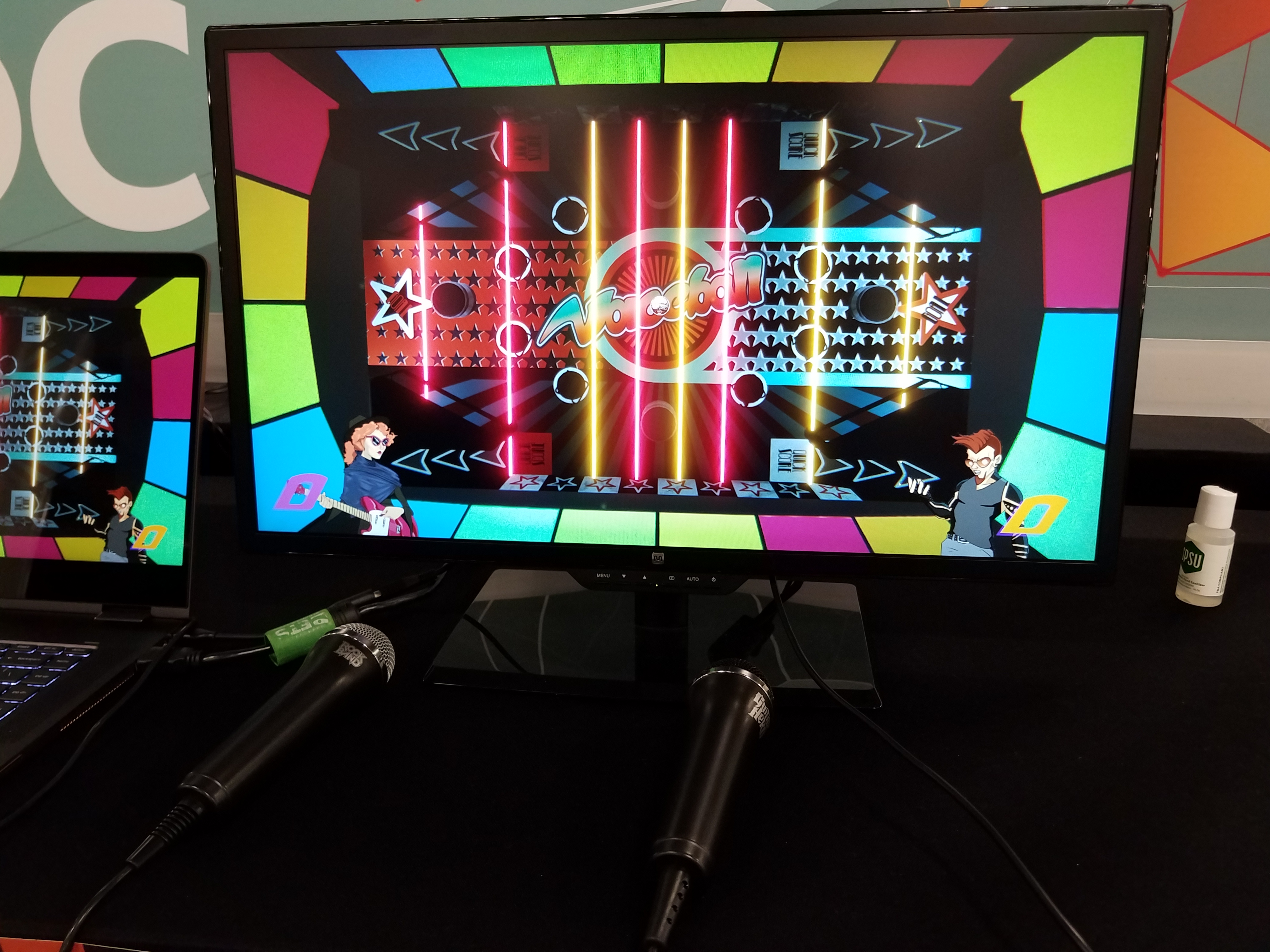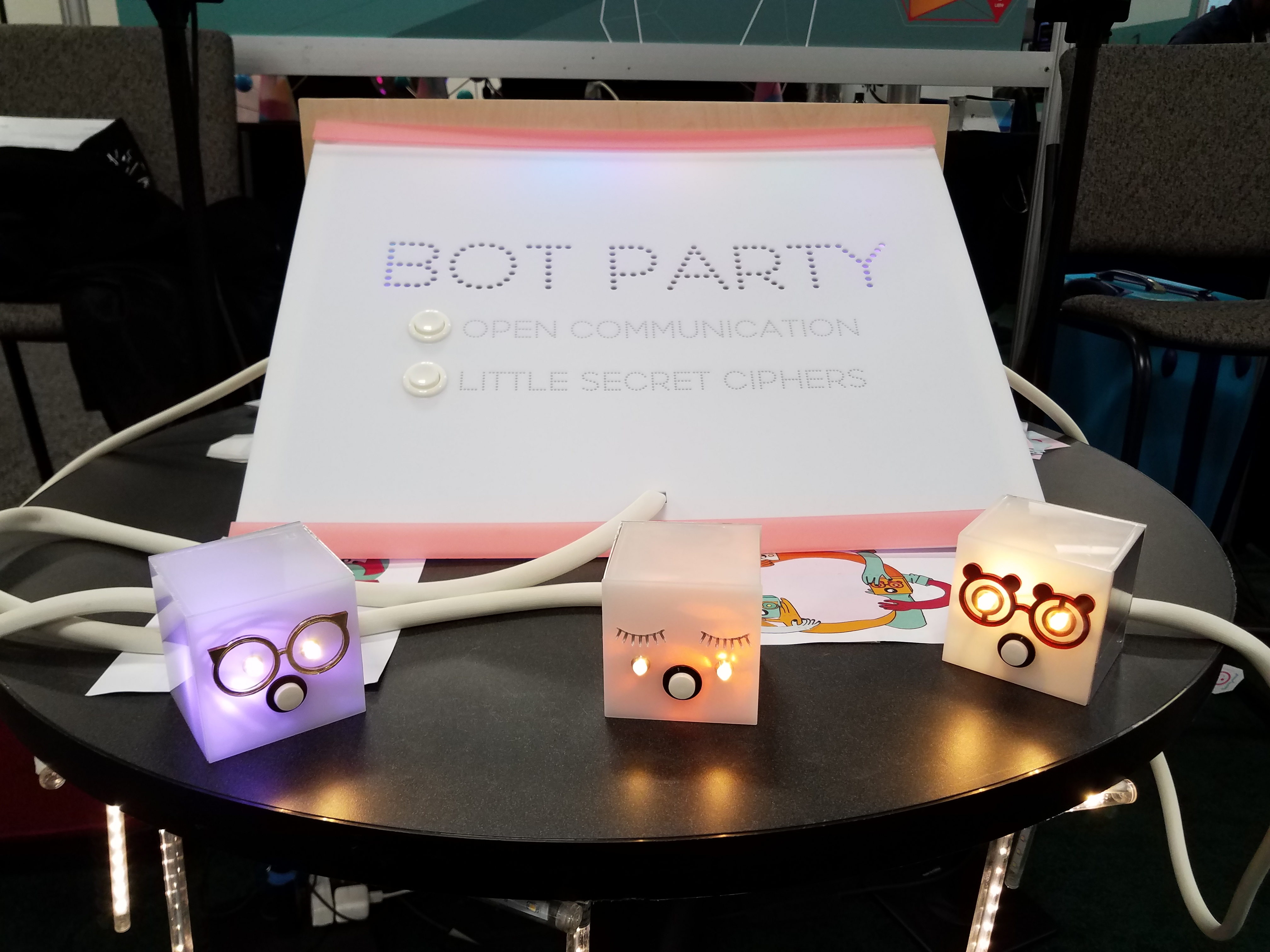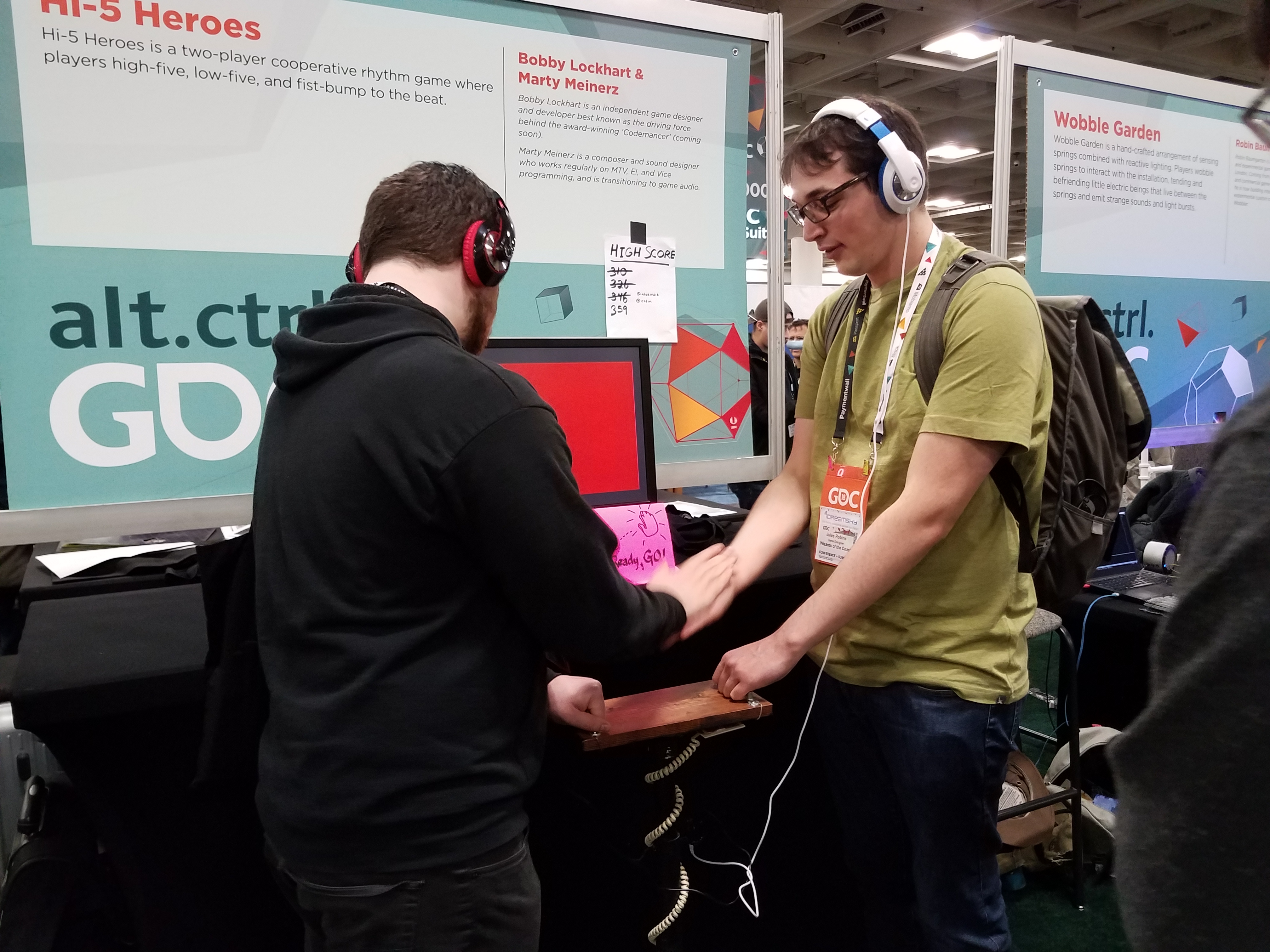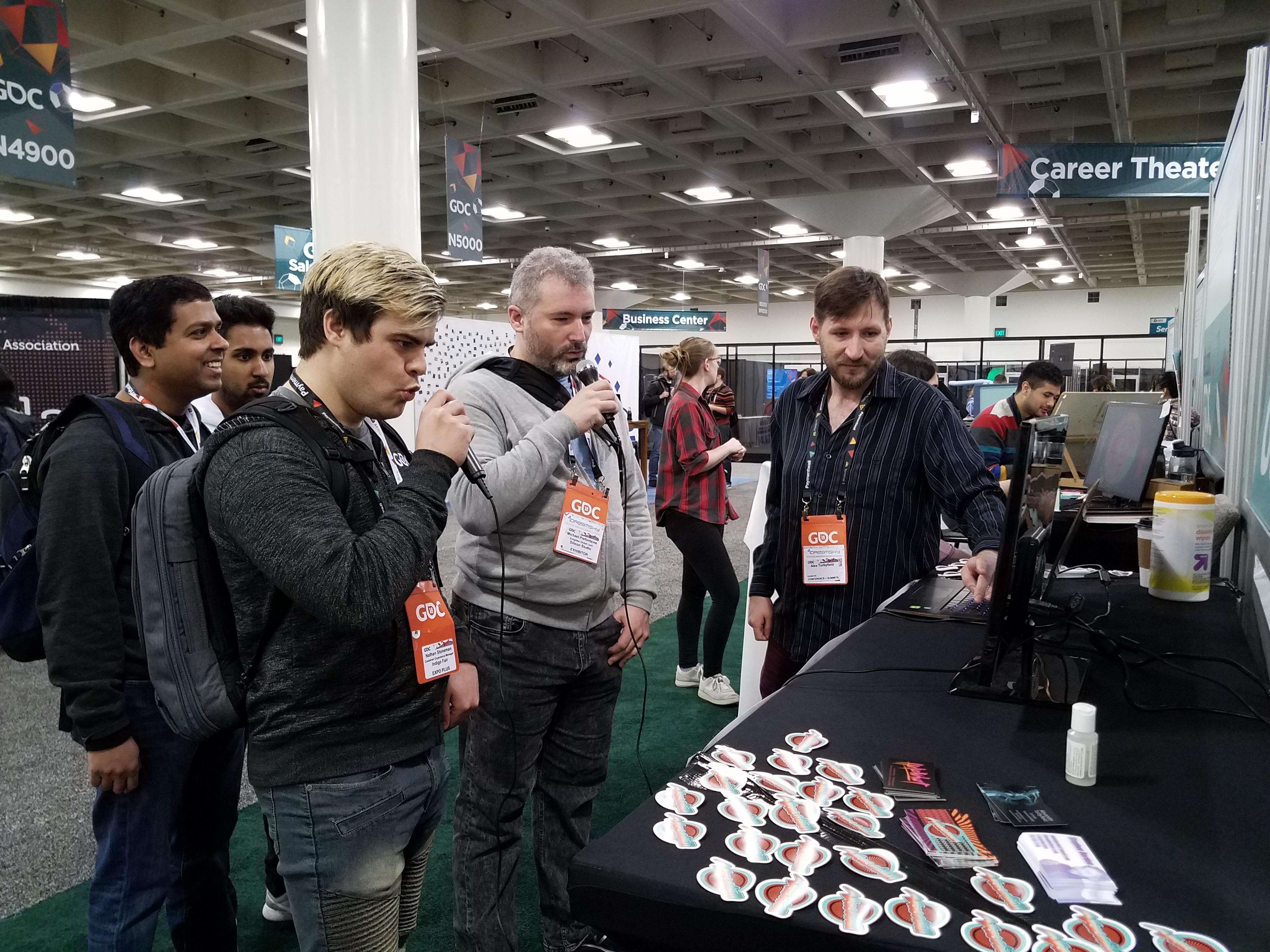Some of GDC's best games were controlled by singing, high-fiving, and holding hands
Our columnist Ben Prunty, composer for Into the Breach, found some fascinating audio games at the Alt Ctrl GDC showcase.


Ben Prunty is the composer whose music you've heard accompanying your battles against the Vek in Into the Breach and the death of your crew in FTL: Faster Than Light. His column for PC Gamer covers the role of music and sound in games.
One of my favorite things at the Game Developers' Conference each year is Alt Ctrl GDC, an amazing collection of fun and often bizarre games that use unique, custom hardware. From a game where you have to smile at a friend subtly enough to get past a facial recognition AI to a one-dimensional dungeon crawler, you never quite know what you'll find each year, and it's always a joy.
I thought it would be fun to do a little actual journalism and write about the three audio-related games I found at Alt Ctrl this year.
The first was Bot Party, the hardware of which is actually a platform of sorts for several games and musical experiences by its creators, Phoenix Perry and Charlie Ann Page. For the game I played, we had three players: my friend and me, plus a hapless stranger we grabbed at the last second.
Each of us held a cute metal robot head that was attached to the main unit. The story is that the robots want to communicate with each other, but need us to do it. Music played, and at certain times, two of the robots lit up, meaning the people holding them had to touch each other somehow (to complete a circuit in the hardware).
We hack into your happiness circuits.
Phoenix Perry
In addition to guiding the players with lights, each robot acts as a controller of sorts; you can move it around to alter the music and change the pace of the game. They also chirp and talk, which gave the whole thing a lot of personality.

Once we got a handle on following the rhythm of the music, we fell into a groove that felt a little like a choreographed dance. It was pleasantly awkward to play with a stranger, which turns out to be the point. "We’re trying to bring joy and spread happiness with Bot Party." says Phoenix, "We hack into your happiness circuits. Scientifically, when you hold hands with another person you get a small oxytocin burst in your brain. Touching other people also decreases stress-producing hormones. Also, there are studies that show making music together increases pro-social behavior. We are just a little bit nicer for several hours after the experience."
They're currently working to release the hardware and code base as a platform for other devs to make music games with. You can learn more about it on their website.
The biggest gaming news, reviews and hardware deals
Keep up to date with the most important stories and the best deals, as picked by the PC Gamer team.
The next game I played was High-5 Heroes, another one that involves physical contact. This one was more strictly a rhythm game. Two players put on headphones and hold a metal handle. They have to high-five, low-five, or fist-bump each other to the rhythm of the music according to voice commands.
Though my friend assured me that, as a music guy, I would have no trouble with this game, we were just awful, both at following the voice commands and hitting anything even resembling a rhythm. We were laughing pretty much the entire time though, so I'd say it was a success.
I asked Bobby Lockhart, one of the game's creators, what kind of experience they were trying to evoke. "We were trying to get at two feelings, I think," he told me, "Firstly, the satisfying feeling of a really meaty high-five. Secondly, the awkward fumbling of meeting someone and not knowing if they're a hugger, or handshake person, or what—and them wondering the same."

The game's original concept had more players and was loosely based on the children's game patty-cake. "I thought it would be cool to make people unintentionally do a whole choreographed dance, but it was ultimately too ambitious, so I scaled it back a bit." People kept coming back to play again, and the developer kept a handwritten scoreboard pinned up.
A trained opera singer at the conference played the game. She was able to to display tactics and attacks in the game that we had never seen before.
Alex Turbyfield
The last game I played was Voiceball. Imagine a foosball table, but the rods with little soccer players attached have been replaced with sound waves. Which you control. With your voice. It was ludicrous, clever, and hilarious to watch other people play. In order to get a nice spike and smack the ball with any kind of power, you had to make a clear tone with your voice, experimenting with the pitch in order to position the waveform. So just imagine two people with microphones standing in front of a screen and going "OOooOOoOOoooooo!"

Alex Turbyfield, one of the game's developers, had what might be one of my favorite GDC stories: "A trained opera singer at the conference played the game. She was able to to display tactics and attacks in the game that we had never seen before. She seemed ecstatic that someone was making a game that praised voice ability. The next day, she brought some fellow opera singers around for some exhibition matches. It really drew a crowd!"
That might be one of the coolest things about Alt Ctrl GDC. By drastically changing the way we interact with games, you can bring in entirely new groups of people and have experiences that couldn't have existed before. I can't wait to see what shows up next year.

